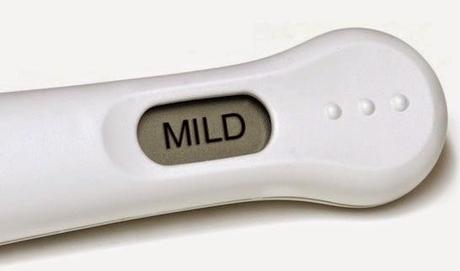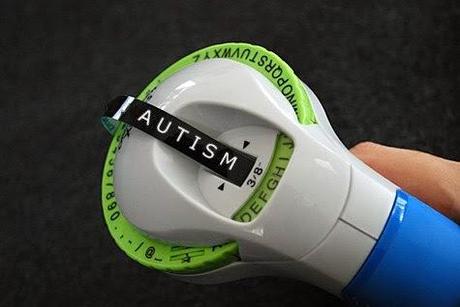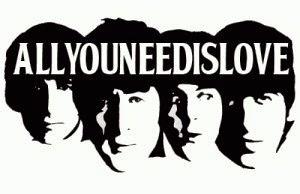You see it all the time on web forums, things are going smoothly until a parent somewhere pipes up with the phrase, "I have a son who is mildly Asperger's. ..." and from there on, the group dissolves into two factions. One is continuing to remain loyal to the original purpose of the group, providing support and advice while the other is offended and is either busily discussing the semantics of the word "mildly" or tearing strips off the poor person who used the turn of phrase. It's also a turn of phrase that some people on the spectrum use to refer to themselves although this is much less common.
What is "mild Asperger's and why do some parents find it so necessary to use it to describe their children? Why do people with Asperger’s syndrome become so annoyed over the use of the term? What is really being said and what is really needed? Hopefully this post will answer some of these questions.
The Binary status of Asperger’s Syndrome
One of my readers recently said that "saying that you are mildly Asperger's is like saying that you are mildly pregnant". This is a very good analogy. Much like pregnancy, Asperger’s syndrome has a "binary state". It can be on or off, there is no other state.

People's lives can be affected to varying degrees by Asperger’s depending upon various conditions but if you don't have Asperger's now, you're not going to develop it later in life. It may be recognized as a pre-existing undiagnosed condition but you either have it or you don't.
Similarly, if you have Asperger's syndrome now, you may find that over time you learn to mitigate many of the worst symptoms but that doesn't mean that you no longer have Asperger's syndrome.
Autism and Asperger's syndrome are lifelong conditions.
What do Parents really mean when they say that their child is "mildly Asperger's" or mildly autistic?
Parents who refer to their child's condition as mild are generally saying two things;
1. In my opinion, my child seems to be coping better than others with the same label
2. I don't agree with, or haven't fully accepted the label.
Both of these streams of thought are problematic.
Coping Ability
The ability to cope with anything is not a linear progression. It’s patchy. People cope better on some days and worse on others. In the best cases, there’s a small progression towards better coping but even then it’s usually only visible in the long term view of day-to-day “two steps forward, one step back” style progression.
It’s also pretty easy for one particularly bad day to set coping ability right back to zero.

One of the best analogies for understanding the way coping ability varies with kids with Asperger’s syndrome is to think of it as being a similar process to a person coping with depression due to the loss of a loved one.
Some days are better than others. Some days, particularly special days, like birthdays and family gatherings, are worse. On the whole though, there’s a gradual "healing process" at work. For example, comparing special days from one year to another, the impact should ideally lessen… This is similar to the way a child with autism learns to moderate their responses to cope with the world around them.
Of course, a subsequent loss can set everything right back to where it started -- In the case of a child with Autism/Asperger's, this could be a traumatic event, for example a very public meltdown in front of friends, a new bully at school or even just a change of circumstances, such as "moving house".
Coping doesn't mean Healing.
People don’t “heal” from Asperger’s syndrome or autism but they do learn coping skills. For example, they may learn about a social faux pas which violates social norms and draws unwanted attention. The first couple of times this happens, it will cause a lot of pain (embarrassment). They may learn to avoid that pain by not repeating the activity.
A good example of this was a boy at my school when I was five. He dropped his pants to his ankles while standing at the public urinal and he had to endure taunts from his peers for months afterwards. Needless to say, he learned that it wasn't the most appropriate behavior.
This isn't healing, this is simply learning the social norms required to cope with everyday life.
Parents who look at other people’s children and assume that their child is able to cope with their autism more effectively aren't doing themselves any favours. A child’s ability to cope will greatly depend upon their situations, experience and environmental factors, such as loud music or smells, which are outside of their control.
Coping can’t be ranked because it’s not something linear. It’s situational.
Acceptance of the Label
It’s not essential that a label be accepted in order for a child to get the attention they need, (see my post on Special-ism: When Parents Disagree – Focus on Treatment). It does help however, when discussing matters relating to your child.

Parents who say their child has mild autism or mild Asperger’s however are really saying; “He may have this label, but he is NOT like THEM. "Them" being “Rain Man” or other “apparently classic” depictions of the label. They’re trying to say; “my child is better” - and they're doing this for their own sake, not for their child.
This is both insulting for others with autism and damaging for the child. It suggests that the parents are very judgemental and that they aren't open to trying behavioural exercises which work for other children on the spectrum.
What is really needed?
Unfortunately, these types of ignorant comments come across as very insulting to others on the autism spectrum . They can often provoke heated debates about the nature of this "mild" Autism and sometimes these can escalate into arguments or even a refusal to provide support; don't forget that many of the best practitioners in special needs have children on the spectrum - or are on the autism spectrum themselves.
It's understandable that people feel the need to lash out against insulting remarks but this doesn't help the child on the spectrum. They need support and understanding. It doesn't help the parents either as the use of the term "mild " suggests that they're either new to it all, or they're not coping well.
Correction is not needed here, merely gentle coaxing.
It doesn't matter what words parents want to use provided that their child is receiving appropriate early intervention. Once parents and child are on this path, understanding should follow naturally.


